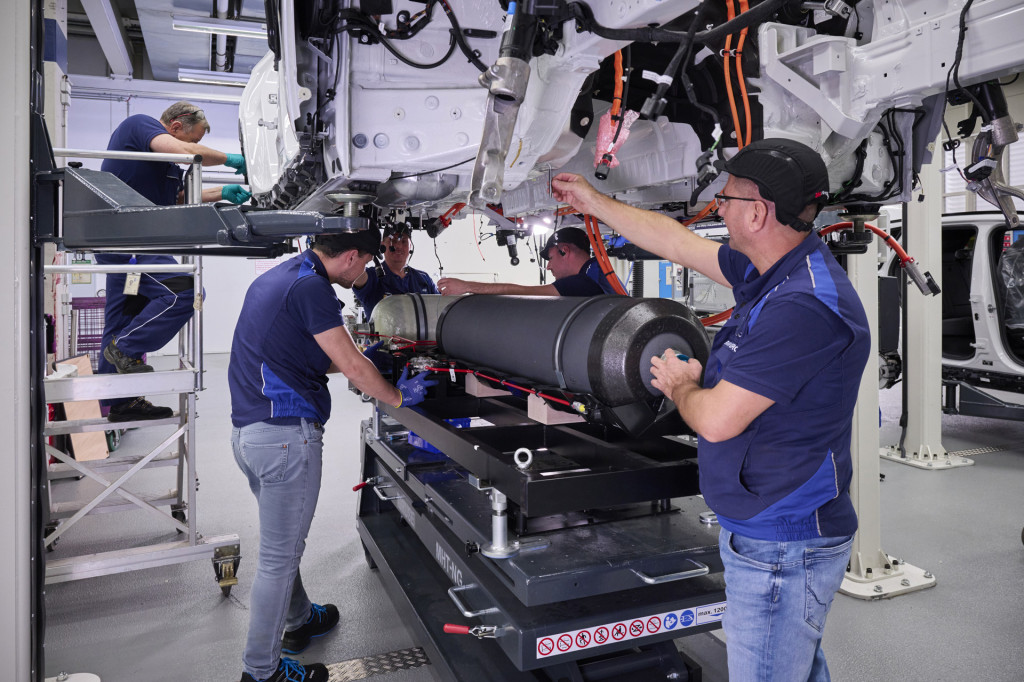BMW will add a hydrogen-powered vehicle to its lineup in 2028, the automaker announced on Thursday.
It will be a hydrogen-electric vehicle using a next-generation powertrain developed jointly with Toyota, which plans to use the powertrain in its own vehicles.
A hydrogen-electric vehicle is similar to a battery-electric vehicle, but instead of the drive system drawing energy from a charged battery it relies on a hydrogen fuel cell stack. Such vehicles also often have a battery that steps in to deliver extra energy during high-load situations.
BMW has been building hydrogen-electric X5 SUVs since late 2022, albeit in very low volumes. The vehicles have been limited to test and demonstration purposes and never offered to the public. The hydrogen-electric vehicle due in 2028 will be a regular production model. It will be a variant of an existing model line, BMW has confirmed.

BMW iX5 Hydrogen production – Dec. 2022
BMW, much like Toyota, wants to offer customers a choice of powertrains, be it gas powertrains, plug-in hybrids, battery-electric vehicles, or hydrogen-electric vehicles.
A lack of charging infrastructure is still one of the biggest sticking point for would-be EV buyers, but hydrogen infrastructure is almost nonexistent. To address the issue, BMW and Toyota view the development of hydrogen-electric passenger vehicles as a means to create demand.
Both companies are also working with energy firms specializing in production and distribution of low-carbon hydrogen. Toyota last fall demonstrated a pilot plant able to turn biogas into hydrogen.
Toyota and several other companies including Bosch, Ferrari, and Porsche are also looking at internal-combustion engines designed to run on hydrogen, albeit likely for use in motorsports rather than production vehicles. When burning hydrogen, engines emit zero carbon emissions. However, they also emit harmful nitrogen oxides that need to be treated using urea-based selective catalytic reduction like in modern diesel engines.


